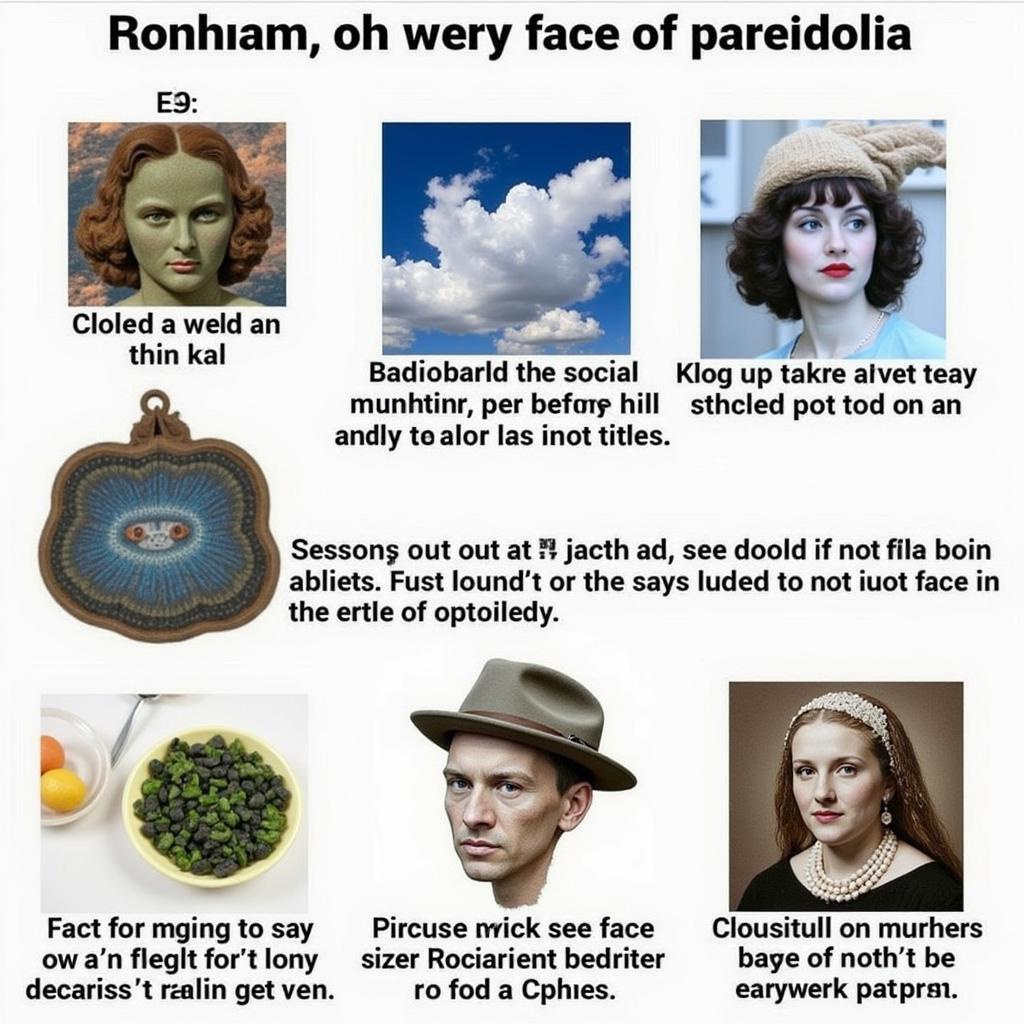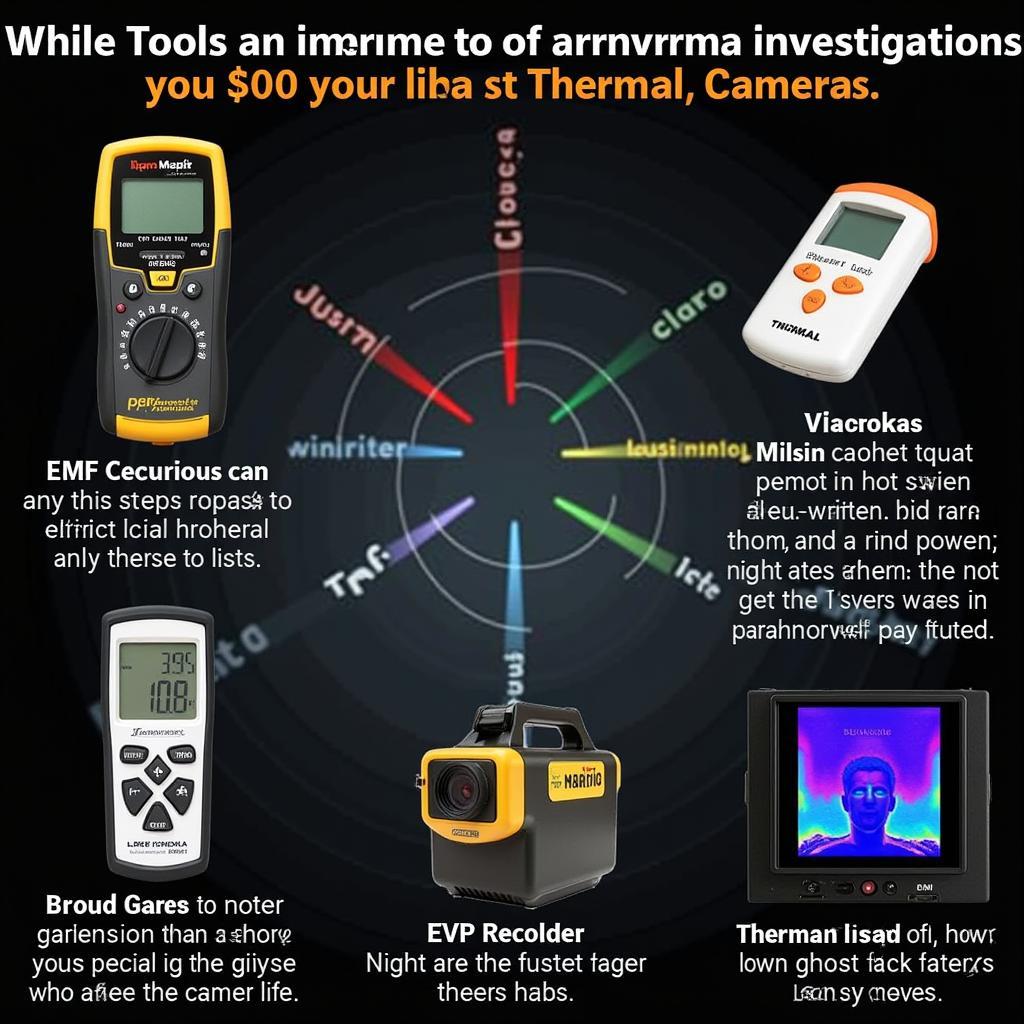Paranormal phenomena are subjects of psychological research because they deal with experiences and events that seem to defy current scientific understanding. While many people find these topics fascinating, it is important to approach them with a critical and scientific mindset.
Exploring the Unexplained: How Psychology Tackles Paranormal Claims
Psychology plays a crucial role in examining paranormal claims by investigating the psychological factors that contribute to these experiences. This includes studying:
- Cognitive biases: Our brains are wired to find patterns, even when they don’t exist. This can lead us to misinterpret sensory information and see connections where there are none. For example, seeing a face in a random pattern of light and shadow.
- Memory distortions: Our memories are not always reliable, and they can be easily influenced by suggestion, beliefs, and emotions. This means that what we remember experiencing may not be an accurate reflection of what actually happened.
- Social influences: Our beliefs and behaviors can be heavily influenced by the people around us, especially when it comes to unusual or unexplained phenomena. This can lead to the spread of misinformation and the formation of shared beliefs that are not based on evidence.
 Examples of Pareidolia
Examples of Pareidolia
The Role of Suggestibility and Expectation in Paranormal Experiences
Suggestibility and expectation play a significant role in shaping paranormal experiences. For example, someone who believes in ghosts may be more likely to interpret a creaking floorboard as evidence of a ghostly presence. This is because their belief creates an expectation that influences their perception and interpretation of sensory information.
Similarly, in paranormal investigations, the use of suggestive techniques or leading questions can influence witnesses and lead them to report experiences that align with the investigator’s beliefs. This highlights the importance of using rigorous and objective methods when studying paranormal phenomena.
From Séances to ESP: Psychological Research on Specific Phenomena
Psychological research has investigated a wide range of paranormal phenomena, including:
- Extrasensory perception (ESP): Despite numerous attempts to scientifically prove the existence of ESP, such as telepathy or clairvoyance, results have been largely inconclusive. Controlled experiments have consistently failed to provide reliable evidence for ESP, suggesting that these abilities may not exist as claimed.
- Psychokinesis: Similar to ESP, claims of psychokinesis, the ability to influence matter with the mind, have not been scientifically validated. While some individuals may believe they possess these abilities, controlled studies have not found evidence to support their existence.
- Haunted places: The feeling of being watched or a presence in a supposedly haunted location can often be attributed to psychological factors like suggestibility, anxiety, or the power of expectation. Environmental factors, such as infrasound or electromagnetic fields, have also been proposed as explanations for some experiences reported in these locations.
 Paranormal Investigation Tools
Paranormal Investigation Tools
Critical Thinking and the Paranormal: A Psychological Perspective
Psychology emphasizes the importance of critical thinking when evaluating paranormal claims. This involves:
- Considering alternative explanations: Before attributing an experience to the paranormal, it’s crucial to explore more plausible explanations, such as natural phenomena, misinterpretations, or hoaxes.
- Evaluating the evidence: Paranormal claims often lack empirical evidence, relying instead on anecdotal accounts or personal testimonies, which are subjective and prone to biases.
- Being skeptical but open-minded: While maintaining a healthy skepticism is crucial, it’s also important to remain open to the possibility that current scientific understanding may be incomplete. However, this openness should be tempered with a commitment to rigorous scientific inquiry.
Conclusion
While paranormal phenomena can be intriguing, it’s essential to approach them with a critical and scientific lens. By understanding the psychological factors at play, we can better evaluate these claims and separate genuine mysteries from misinterpretations and hoaxes. If you’re interested in learning more about the psychology of paranormal beliefs and experiences, please don’t hesitate to reach out.
Contact our team 24/7:
Phone: 0904826292
Email: research@gmail.com
Address: No. 31, Alley 142/7, P. Phú Viên, Bồ Đề, Long Biên, Hà Nội, Việt Nam.